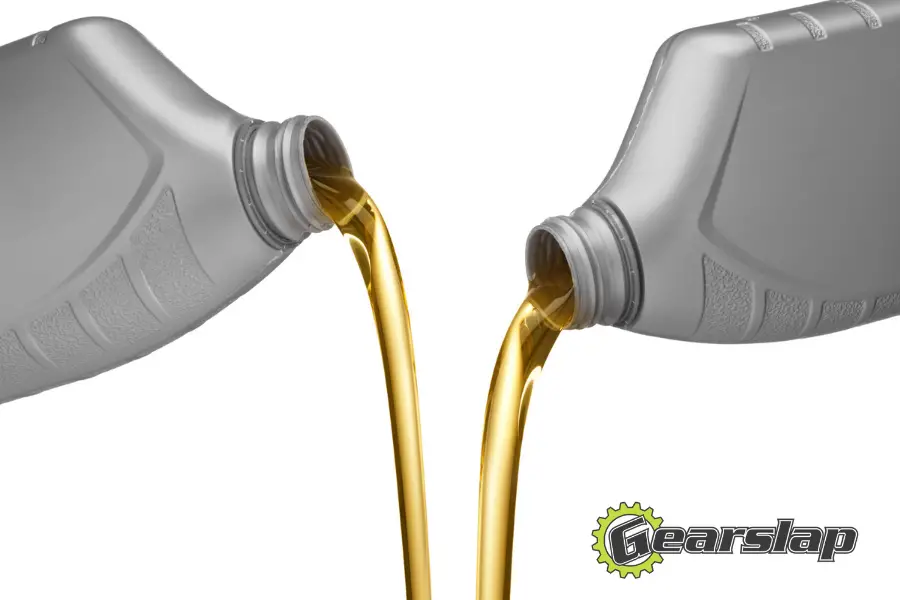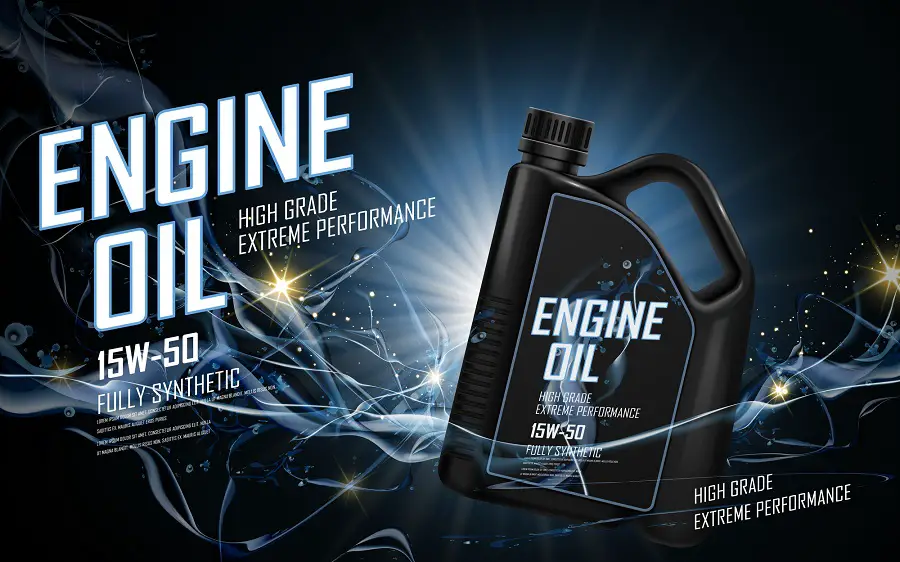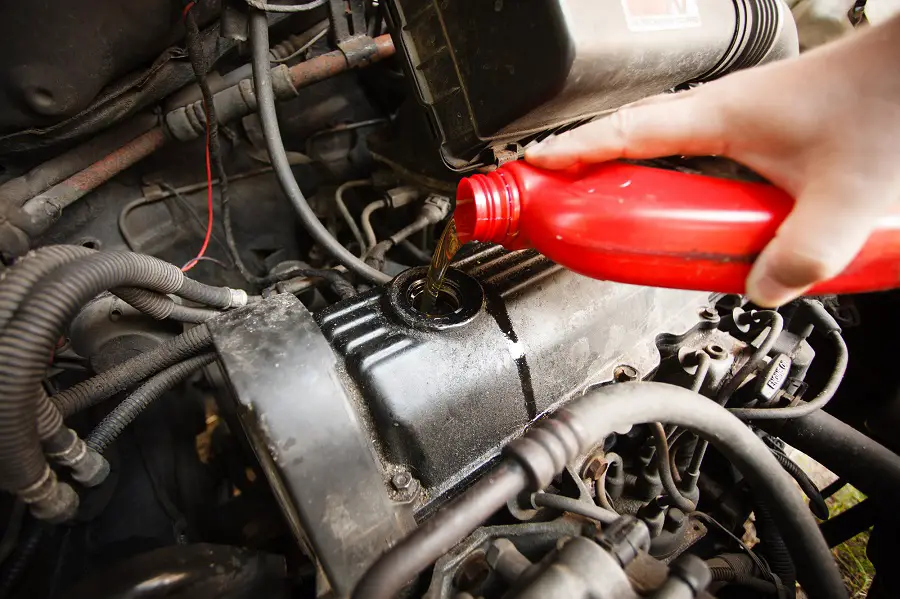BMW cars are luxury vehicles, meaning they have specific servicing requirements. If you use BMW-approved motor oils, you can take more time between oil changes. Keep reading to learn about BMW oil types to choose the best option for your car.
Common Types of Motor Oil for BMWs
You are supposed to put synthetic oil in BMWs. These oils undergo a controlled process where they get synthesized with chemicals. After processing, the oil is free from contaminants present in refined crude oils.
Synthetic oils increase the mileage between oil changes, improve performance at extreme temperatures, and keep your engine clean from build-up.

What Oil Meets BMW Specs?
BMW’s oil specs vary based on the particular model. Each BMW requires motor oil with an American Petroleum Institute (API) rating of SM, SN, or SP.
The ideal European Automobile Manufacturer’s Association (ACEA) specification depends on the engine. If you have a spark-ignition engine, you should use A3/B4, A2/B2, or A3/B3. Those with diesel engines should stick to A3/B4 or A2/B2.
According to the Society of American Engineers (SAE) ratings, you will need to choose your oil based on your climate and engine. Most individuals can use any SAE 0W-X or SAE 5W-X oil. X can represent 30, 40, 50, and 60. These oils will work in any climate or ambient temperature.
The BMW M47 engine cannot use SAE 5W oils at temperatures below -4 °F. Under this temperature limit, you will have trouble starting your vehicle. Those who live in chillier climates should instead opt for SAE 0W products.
Be careful when using SAE 10W-X oils as they struggle with cold-starting troubles at temperatures below -4 °F.
Using BMW Longlife oils means you won’t need to check the viscosity grade. You can opt for these oils in the grades SAE 5W-30, 5W-40, 0W-30, and 0W-40.

What Brand Oil is BMW Oil?
BMW has a line of oils that suit the company’s vehicles.
Nevertheless, it isn’t the only brand that meets BMW’s oil specifications. Multiple companies comply with BMW’s standards. These include:
- Mobil
- Castrol
- Shell
- TRIAX
- Liqui
- Motul
- Ravenol
- Total Quartz
Ensure you check the rating of the oils from these businesses to see if they will fulfill your vehicle’s requirements.
Do I Have to Use BMW Oil in My BMW?
You do not need to use BMW’s proprietary oil in your BMW. While this oil will comply with your engine, many other brands will work.
Make sure that the oil you choose follows the BMW Longlife specifications. Your owner’s manual will specify the oil rating that you need to use.
BMW Longlife-98 oils have been obsolete since 2009. This oil is recommended for cars manufactured before the model year 2002, but you can substitute it with Longlife-01 products.
BMW Longlife-01 is required for cars made after the model year 2002. It is fully synthetic.
BMW Longlife-01 FE oils have fuel economy properties due to their low HTHS viscosity. You can only use this oil grade on N54, N63, N1x, N55, N74, and N2x engines.
BMW Longlife-04 suits vehicles that have a diesel particulate filter. You can also use it in place of BMW Longlife-98 or Longlife-01.
BMW Longlife-12 works with some gasoline engines and these diesel ones: Nx701, Nx7k1, and Nx7U1 from the model year 2013. You cannot use this oil on engines with two to three turbos.
BMW Longlife-14+ works on N20 and Bx8 gasoline engines from the model year 2014.
These specifications can be found in tons of oil brands, so don’t feel forced into using BMW products only.

What Happens if You Put Non-Synthetic Oil in a BMW?
Putting non-synthetic oil in a BMW can shorten the lifespan of the engine. Natural oil comes from refined and distilled crude oil, which occurs naturally as a fossil fuel.
This regular oil has contaminants that degrade while traveling through your engine. You will have a build-up of these oil deposits that appear as sludge. The sludge can shorten the lifespan of your engine and slow its performance.
Since synthetic oils have little to no impurities, they resist sludge and build-up.
Engines generate heat as you drive, which will break down the oil. Regular oil takes more time to heat, so it will struggle to reach the ideal viscosity in the cold. As such, you will encounter cold-starting issues and have a rougher ride.
Regular oil is cheaper upfront, but the quicker degradation means you will need more frequent oil changes. You will save more in the long run by opting for synthetic oil since it expands your engine’s lifespan by up to three times the standard length.
Who Makes BMW TwinPower Oil?
BMW manufactures BMW TwinPower engine oil. This oil suits double exhaust output units and turbo engines. It can accelerate your starting and stopping and improve your engine’s performance in extreme temperatures.
TwinPower oil has Active Cleansing Technology which protects your vehicle from sludge, corrosion, and wear.
You can find M, Silver, and Gold TwinPower oils. M oil fits high-performance engines from the M series. Silver improves your engine’s cleanliness and performance. Lastly, Gold delivers the benefits of Silver with the addition of fuel economy to reduce the amount of gasoline or diesel you use.
Can You Put Synthetic Blend in BMWs?
While you can put synthetic blends in BMWs, the conventional oil will counteract the performance of the synthetic and expedite the degradation of your engine.
Furthermore, you will need to change the oil more frequently. With synthetic oil, you need to service it every 10,000 to 15,000 miles. On the other hand, synthetic blends require service after around 7,500 miles.
If you want to preserve your engine and optimize its performance, try to avoid using synthetic blends in your BMW. BMW engines heat to high temperatures and destroy natural oils rapidly.
However, you would be better off using a synthetic blend rather than regular oil. Regardless, you shouldn’t use blends unless you’re in some sort of oil emergency where that’s your only option.

Why Does BMW Recommend Synthetic Oil?
When you look in your BMW owner’s manual, you will see that it recommends synthetic oil. Synthetic oil can withstand the high temperatures of most BMW engines, which will help keep your car running throughout the year.
Premium engine oils keep your engine clean, so you do not have to perform maintenance as frequently. Non-synthetic options lead to sludge accumulation and slowed performance due to the contaminants in crude oil.
If you want to maximize the performance of your BMW, you should go with the oil grade that the manufacturer recommends for your engine model. Most BMWs come with SAE 5W-30 oil, but you may need a different option for your vehicle.
List of BMW-Approved Motor Oils
Here is a list of some BMW-approved motor oils:
- Liqui Moly Leichtlauf High Tech Engine Oil (SAE 5W-40)
- Mobil Full Synthetic High Mileage (SAE 5W-30)
- Valvoline Advanced Full Synthetic (SAE 5W-30)
- Castrol Syntec European Formula (SAE 0W-40)
- BMW M TwinPower Turbo Engine Oil (SAE 0W-40)
- Total Quartz INEo MC3 Engine Oil (SAE 5W-40)
- BMW Original TwinPower Turbo (SAE 0W-30)
- Castrol Formula RS Synthetic Engine Oil (SAE 10W-60)
- Valvoline SynPower (SAE 5W-40)
- Pennzoil EURO L Full Synthetic (SAE 5W-30)
- Castrol EDGE Advanced Full Synthetic Motor Oil (SAE 0W-30 and 5W-30)
- Mobil 1 European Car Formula Synthetic Motor Oil (SAE 0W-40)
- BMW High-Performance Synthetic Oil (SAE 5W-30)
- TRIAX Ester Full Synthetic Euro Ultra VX (SAE 5W-30)
- Liqui Moly Special Motor Oil (SAE 5W-40)
- Liqui Moly Special Synthetic Motor Oil (SAE 5W-30)
- Motul 8100 X-Cess (SAE 5W-40)
- Ravenol Fully Synthetic Motor Oil (SAE 0W-30, 0W-40, 5W-30, 5W-40)
- Castrol TWS Motorsport [SUPERCAR] Synthetic Engine Oil (SAE 10W-60)
If you live in a warm climate, look for a 5W-X oil. Those in colder climates may benefit more from 0W-X. 10W-60 suits M series engines.





